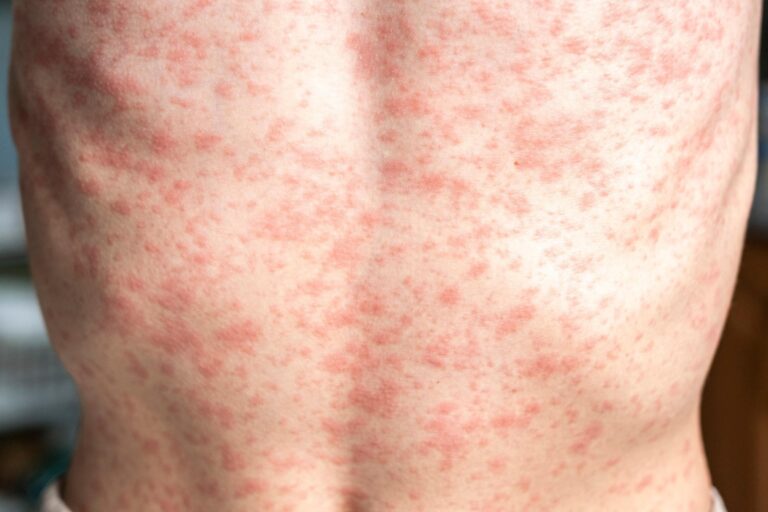The Dangers of Intentional Measles Exposure in Texas Communities
Texas health authorities are raising serious concerns about the revival of ŌĆ£measles parties,ŌĆØ where unvaccinated children are purposefully exposed to the measles virus. This hazardous practice significantly increases the likelihood of widespread transmission and threatens the protective barrier of herd immunity. Once declared eliminated in the United States, measles remains one of the most contagious viral diseases, capable of causing severe health complications, especially in young children and those with weakened immune defenses.
Critical issues highlighted by health officials include:
- Highly contagious nature: Measles virus can linger in the air for up to two hours after an infected person coughs or sneezes, facilitating rapid spread.
- At-risk groups: Infants too young to be vaccinated, pregnant women, and immunocompromised individuals face heightened vulnerability to serious illness.
- Healthcare system impact: Outbreaks place immense pressure on hospitals and clinics, diverting resources from other essential medical services.
- Vaccination as the cornerstone: Immunization remains the most reliable method to prevent infection and protect the wider community.
| Measles Fact | Information |
|---|---|
| Period of contagiousness | From 4 days before to 4 days after rash onset |
| Incubation period | Typically 10 to 14 days post-exposure |
| Effectiveness of vaccine | Approximately 97% protection after two doses |
| Potential complications | Pneumonia, brain inflammation, and rarely death |
Why Increasing Vaccination Coverage Is Essential to Halt Measles Outbreaks
Health experts in Texas are strongly discouraging the practice of ŌĆ£measles parties,ŌĆØ where parents intentionally expose children to the virus in hopes of natural immunity. Such actions not only endanger the health of the children involved but also compromise community-wide protection, especially for those who cannot be vaccinated due to medical reasons.
To effectively combat the resurgence of measles and other vaccine-preventable diseases, public health officials stress the following priorities:
- Raising vaccination rates to achieve herd immunity, which for measles requires about 95% coverage
- Addressing vaccine misinformation through targeted education campaigns
- Safeguarding vulnerable populations who depend on community immunity for protection
| Disease | Required Vaccination Coverage | Community Consequences |
|---|---|---|
| Measles | 95% | High risk of outbreaks and severe health outcomes |
| Mumps | 90% | Moderate outbreak potential with possible long-term effects |
| Rubella | 85% | Critical for protecting pregnant women and fetal health |
Texas Launches Initiatives to Combat Measles Misinformation and Promote Vaccination
In response to the alarming increase in measles cases and the resurgence of ŌĆ£measles parties,ŌĆØ Texas state health departments have intensified public education efforts to dispel myths and misinformation. Officials emphasize that intentional exposure to measles is a dangerous gamble that undermines decades of public health progress.
Key strategies in the stateŌĆÖs awareness campaign include:
- Educational workshops: Conducted in schools and community centers to inform parents about measles transmission and the benefits of vaccination.
- Digital outreach: Utilizing social media platforms to share accurate information and counteract false claims rapidly spreading online.
- Healthcare provider partnerships: Equipping medical professionals with up-to-date resources to effectively communicate vaccine safety and disease prevention.
Recent data from Texas counties illustrate the correlation between vaccination rates and measles incidence, underscoring the urgency of improving immunization coverage:
| County | Vaccination Rate (%) | Reported Measles Cases (2023) |
|---|---|---|
| Dallas | 89 | 35 |
| Travis | 92 | 12 |
| Harris | 87 | 40 |
| Bexar | 90 | 18 |
Urgent Vaccination Recommendations for High-Risk Populations in Texas
Medical professionals across Texas are urging caregivers to prioritize immunizations for vulnerable groups, including infants, seniors, pregnant women, and immunocompromised individuals. Given the recent spike in measles cases, delaying vaccination increases the risk of severe illness and complications.
Healthcare providers recommend scheduling vaccinations promptly to strengthen herd immunity and protect those who cannot be vaccinated due to health conditions.
To facilitate access, many clinics have extended hours and offer free consultations to assist families in making informed decisions. The following groups are identified as critical for immediate immunization:
- Infants aged 6 to 12 months
- Pregnant women
- Individuals with compromised immune systems
- Older adults aged 65 and above
| Population Group | Recommended Vaccines | Priority Level |
|---|---|---|
| Infants (6-12 months) | MMR, DTaP | High |
| Pregnant Women | Influenza, Tdap | High |
| Immunocompromised Individuals | Only inactivated vaccines | Immediate |
| Seniors (65+) | Shingles, Pneumococcal | High |
Conclusion: Strengthening TexasŌĆÖ Defense Against Measles Through Vaccination
As measles cases continue to rise in Texas, health officials are unequivocal in their warning against ŌĆ£measles partiesŌĆØ and other risky behaviors that promote virus transmission. Vaccination remains the most effective tool to prevent outbreaks and safeguard public health. Families are encouraged to consult healthcare providers and adhere to recommended immunization schedules to protect themselves and their communities from this highly contagious disease.







